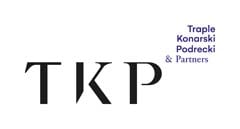News and developments
New preliminary questions to the CJEU concerning the concept of a ‘work’ – practical conclusions
The Court of Justice of the European Union (CJEU) has recently received further preliminary questions concerning the understanding of the concept of a work.
The CJEU generally indicates in its case law that a work is an original subject matter which is the author's own intellectual creation. Key criteria in the assessment include the concepts of free and creative choices.
The problem of practical application of these general concepts rests with the national courts[1]. For right holders seeking protection against copyright infringement, the recognition of a subject matter as a work is fundamental, since only in such a case they are entitled to protection.
The questions submitted by the German Federal Court (‘BGH’)[2] and the Stockholm Court of Appeal[3] reflect the doubts encountered in practice by the courts when applying the CJEU guidelines.
In the questions submitted, the courts ask for the clarification of the criteria for assessing the occurrence of free and creative choices. The questions have an important practical procedural dimension - should the examination of originality focus on factors related to the stage of creation of the work, namely the creative process itself and the determination of the actual choices the author made in the creation of the work, or on factors relating solely to the object and result of the creative process?
This doubt leads to the practical problem of whether, in the case of a lawsuit, it is sufficient for the claimant to merely present a copy of the work (a book or photographs of a utilitarian object) or whether, for the court's assessment, it is necessary for the claimant to explain in detail in which specific aspects the author's free and creative choices are manifested.
The above problem is particularly evident in the frequent disputes over utilitarian objects, where creativity is subject to numerous technical and functional constraints.
The CJEU's response will also have significant procedural relevance for challenges concerning the evaluation of works created with AI tools. In particular, the CJEU's recognition that the court should only assess the outcome of the creative process may pose challenges to evidentiary issues in court cases involving the increasingly common works created with the use of AI.
Observation of case-law practice, including rulings by the Polish courts, leads to important conclusions. It is important, particularly in cases involving utilitarian works, to establish an appropriate litigation strategy and to compile evidence to allow the court to assess the existence of free and creative choices. The claimant's lack of initiative in this regard may lead the court to assume that the subject matter does not meet the criteria of a work, ultimately leading the court to dismiss the claim for protection.
Author: Piotr Grzybowski, Attorney‑at‑law, Senior Associate
Footnotes
[1] Preliminary rulings of the CJEU do not rule on the merits of the case. They merely provide clarification of the provisions of EU law for the national courts who submit such requests.
[2] Order of the BGH of 21 December 2023, I ZR 96/22
[3] Order of Svea hovrätt, Patent- och marknadsöverdomstolen of 21 September 2023, case at CJEU under reference C-580/23.
